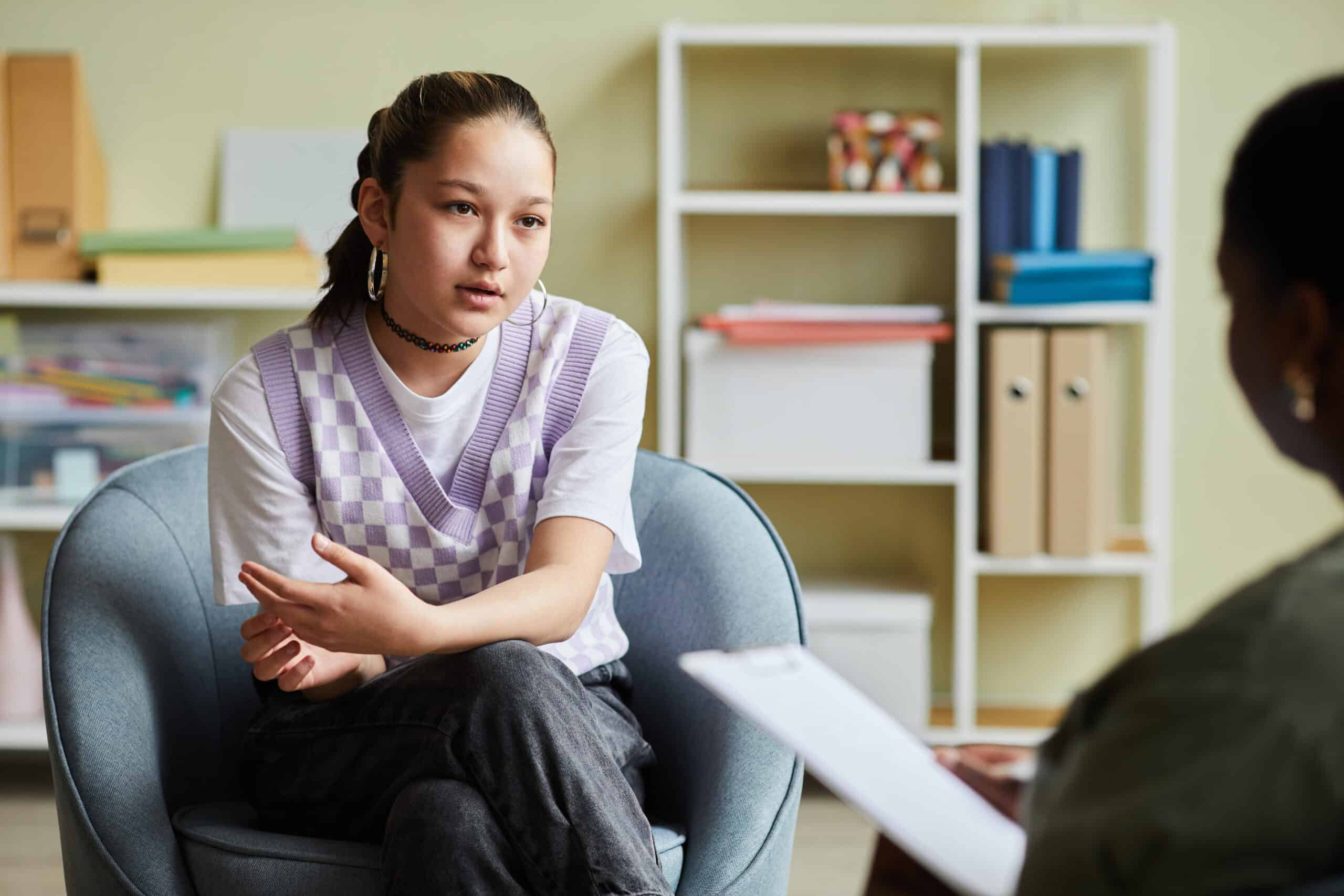
Lila’s Story: It Can Only Get Better
Lila* is a survivor of child sexual assault, and she was assaulted again when she was aged 16. After years of being diagnosed with anxiety, depression and other mental illnesses, she was referred to a HELP counsellor, where she has finally received the support she needed to start healing.
“I’ve experienced sexual abuse twice in my life, and it made me feel very lost and broken, and full of resentment and anger,” says Lila. Even once she started getting support from HELP, it took Lila some time to come to terms with the healing process. “Throughout my whole high school life, essentially my entire life up until then, I hadn’t been dealing with it. A lot of that was because the dynamic at home meant that I couldn’t,” she explains.
“I’m still in the process of working through it. And I think that I will always be unpacking things and healing that trauma. Before I got help, it felt like a gunshot wound right in an artery, and that I would just keep bleeding out. I couldn’t keep relationships. I literally couldn’t live.”
“Logistically, the process of getting help was easy because I did it through school. Emotionally, it wasn’t easy, but it wasn’t as hard as I thought either. And that’s because I got matched with a great therapist. We clicked really well and she’s still my therapist to this day, bless her soul.”
“Having someone who could understand me, on like a cultural level, that has been amazing. Just having someone like that has made a world of difference for me. Someone who, in a very gentle way, has challenged me and encouraged me to dig deeper, even if I didn’t want to or I was scared to. The process is never easy, but it wasn’t as difficult as I thought it would be.”
Once Lila started seeking support from HELP, she realised that everything that was happening connected to her sexual assault. In the past, she had been diagnosed with a range of illnesses, including anxiety, depression, and seasonal depression disorder (SAD). “I was getting diagnosed with these things, but I wasn’t getting effective treatment,” she says. “There was no real work happening to unpack what was causing my anxiety and depression, why I wasn’t eating. And it wasn’t until I talked to my HELP therapist, that we really started to connect the dots between what I was presenting with and what had actually caused it.”
One of the most important things Lila has learned from her therapist is how to make those connections and work through things by herself. “Although this is the type of trauma that never really goes away, I’m learning how to be okay. I’m learning how to self-soothe when it gets hard and have my own agency. And knowing that I am aware enough to know what’s happening when I have a flashback, or a panic attack, or when I’m getting triggered about something. That’s something really valuable that I wouldn’t have learned otherwise.”
Before HELP I could never really pinpoint what to do about my anxiety, I would just panic,” Lila explains. “But through my therapy sessions, I’ve learned how to do something about it, to be more intuitive, and be open enough to be curious, regardless of how terrifying it is. A lot of the time, that curiosity has to happen with my therapist, because it’s a safe space and sometimes you need somebody to pull you out of it. But just even having that awareness to know that I can rely on myself to get through a tough patch, was something that I didn’t have before.”
Lila says that letting go of the trauma has been the hardest bit. “I still am learning how to let go, but you learn that it will never be worse. It can only get better. And then it does get better and better in small increments, and then one day, you look back on your first day of therapy and realise that you’re not the same person, and that is a good thing. Because you are stronger. You’re more capable of understanding yourself and your body and you can trust yourself enough to know that you are going to be okay. No matter how broken and awful and lost you might feel … asking for help is what will save you, because it will never be as bad as it is now.”
“Asking for help, especially for the first time, will always be the hardest step. If you can’t bring yourself to seek treatment, think of the inner child inside of you. The child that never deserved to experience what you did. That child deserves to heal and feel as though their life is more than what has happened to them. if you can’t seek help for you, then do it for that child.”
* Names have been changed to protect identities.
